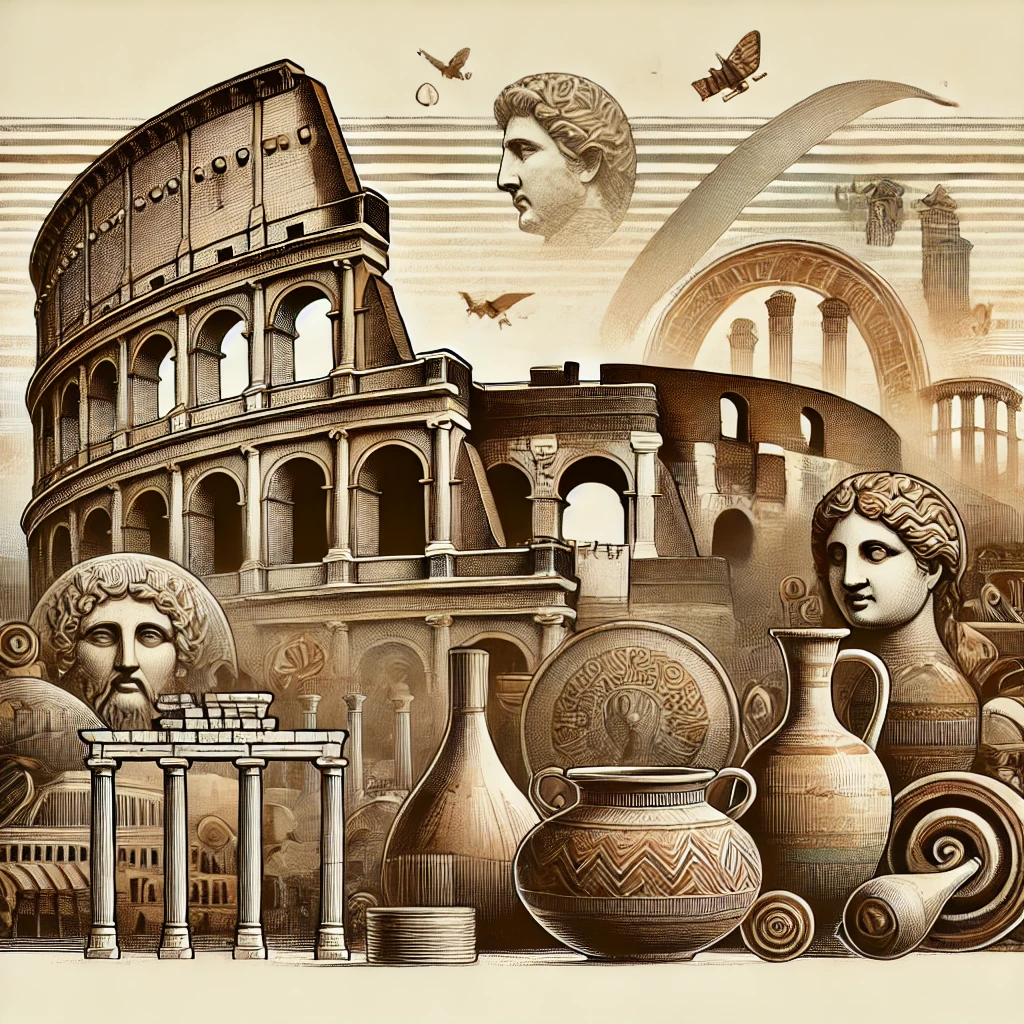The concept of antiquità is more than a relic of the past; it is a vibrant connection to our roots. This article explores the various aspects of antiquità, examining how ancient cultures shaped modern society. By understanding these historical influences, we can appreciate the enduring legacy that antiquità has left on our contemporary world.
The Enduring Allure of Antiquità
Antiquità captivates our imagination and evokes a sense of wonder. The remnants of ancient civilizations serve as beacons of human achievement, showcasing the evolution of societies and their profound impact on modern arts, philosophies, and sciences. Exploring antiquità is not just an academic exercise; it’s an invitation to empathize with our ancestors, sharing in their struggles and triumphs.
Uncovering the Past in the Here and Now
Encountering antiquità involves engaging in a silent dialogue with history. Each artifact, ruin, or piece of art is like a message from the past, waiting to be opened. The insights of Aristotle, the craftsmanship of Michelangelo, and the architectural wonders of ancient Egypt weave together a rich tapestry of human experience. By understanding antiquità, we can better appreciate our customs, laws, and societal structures today.
A Cultural Crossroads of Ideas
Antiquità serves as a cultural crossroads where different philosophies and methodologies converge. Ancient societies were fertile grounds for ideas that shaped the modern world. Concepts of governance from ancient republics, the reach of Alexander the Great, and the astronomical insights of Ptolemy and Galileo all originated from the shared wisdom of antiquità. This exchange fosters a timeless conversation, enriching our understanding of global thought.
Impact of Ancient Trade Routes on Modern Economics
Ancient trade routes were vital in shaping economic systems, connecting diverse cultures and facilitating the exchange of goods and ideas. The Silk Road, for instance, not only allowed for the movement of silk and spices but also encouraged the spread of innovations such as papermaking and the compass. The principles of trade established during antiquità still influence modern economic practices, highlighting the importance of collaboration and connectivity.
| Ancient Trade Routes | Key Contributions |
| Silk Road | Spread of silk, spices, and ideas |
| Incense Route | Trade of incense and aromatic goods |
| Roman Roads | Improved trade efficiency and military logistics |
The Role of Women in Ancient Societies
Women played crucial roles in ancient civilizations, contributing to social, political, and economic life. In ancient Egypt, for example, women enjoyed legal rights and could own property. In Rome, women influenced domestic spheres and participated in religious rituals. By recognizing the roles of women in antiquità, we can better understand the foundations of gender dynamics in modern societies.
Ancient Innovations That Changed the World
The ingenuity of ancient civilizations led to innovations that transformed human life. The invention of the wheel, advancements in agriculture, and developments in medicine laid the groundwork for future progress. These ancient innovations not only shaped daily life but also sparked further discoveries that continue to influence our world today.
Cultural Exchanges Between Civilizations
The interactions between ancient civilizations fostered cultural exchanges that enriched societies. The blending of Greek and Persian cultures during Alexander the Great’s conquests exemplifies this exchange. The spread of philosophical ideas, art forms, and religious beliefs created a dynamic cultural landscape that is still evident in modern societies. Understanding these exchanges helps us appreciate the interconnectedness of human history.
Environmental Practices of Ancient Civilizations
Ancient societies had diverse relationships with their environments, often employing sustainable practices that modern society can learn from. The agricultural techniques of the Indus Valley Civilization and the water management systems of the Romans highlight their understanding of environmental stewardship. By examining these practices, we can glean insights into sustainable living and ecological balance.
Preserving Antiquità for Posterity
The preservation of antiquità is vital for future generations. It is not only the responsibility of scholars and institutions but also of individuals who recognize its value. Preservation efforts ensure that the stories and achievements of ancient civilizations are not lost to time. By cherishing our antiquità, we invest in our collective heritage.
The Role of Technology in Conservation
Modern technology has revolutionized the preservation of antiquities. Advanced imaging techniques, climate-controlled environments, and digital archiving offer new ways to study and protect ancient artifacts. These innovations democratize access, allowing people worldwide to engage with antiquità virtually. However, the challenges posed by digital decay and environmental factors must be addressed with foresight and care.
Renaissance and Renewal: Antiquità in the 21st Century
The allure of antiquità remains strong in the 21st century, continuously inspiring modern art, film, literature, and cultural practices. Ancient wisdom and aesthetics are reimagined in contemporary contexts, creating a vibrant dialogue between the past and present. This renaissance of interest in antiquità demonstrates its relevance in addressing current societal values and concerns.
Modern Adaptations of Ancient Wisdom
The interpretation of antiquità evolves as ancient wisdom is recontextualized within modern frameworks. Environmental philosophies echoing those of ancient tribes, artistic movements drawing on classical models, and the revival of indigenous customs all emphasize the ongoing significance of antiquità. Each adaptation offers a new lens through which to view and appreciate the past.
Exploring Antiquità in Contemporary Media
Contemporary media frequently draws upon themes of antiquità, allowing audiences to engage with history in dynamic ways. Films, television series, and video games set in ancient contexts provide immersive experiences, connecting viewers with the lives of their ancestors. These narratives serve as sources of inspiration and learning, making history accessible and relatable.
Conclusion
The journey through antiquità is one of self-awareness and continuity. Understanding the relevance of ancient artifacts and rituals connects us to an ongoing narrative of human growth and transformation. As we explore antiquità, we partake in the grand adventure of humanity, inheriting a legacy rich with timeless lessons and enchanting mysteries.
FAQs
What is antiquità?
Antiquità refers to the ancient period characterized by the emergence of early civilizations, such as Mesopotamia, Egypt, Greece, and Rome, marking significant progress in art, science, governance, and philosophy.
What civilizations had made their mark by this era?
The major civilizations during antiquità include Mesopotamia, Ancient Egypt, Ancient Greece, and Rome. These cultures significantly contributed to the foundations of modern society.
What was the importance of ancient Greeks in the current formation of modern Western philosophy?
Ancient Greek philosophers like Socrates, Plato, and Aristotle laid the groundwork for Western philosophy, exploring ethics, metaphysics, and politics that continue to influence contemporary thought.
How did the Romans influence today’s infrastructure?
Roman engineering innovations, such as roads and aqueducts, were pivotal in maintaining their empire and serve as the foundation for modern transportation and water supply systems.
Why is studying antiquità important in the modern world?
Studying antiquità is crucial for understanding the roots of modern society, including politics, legal systems, and cultural practices. It connects us to our heritage and informs our ongoing evolution as a civilization.

